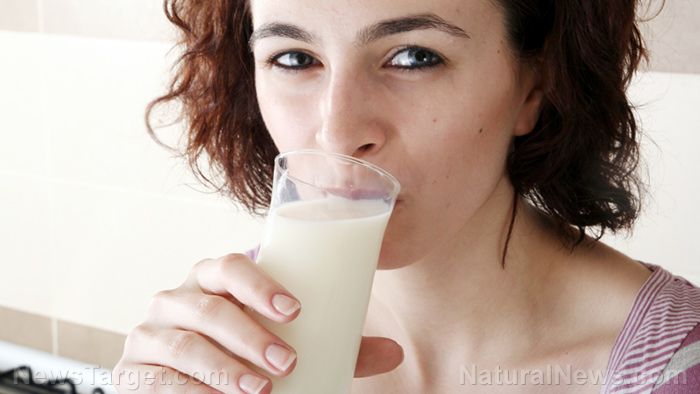A blogger by the name of “Gid M-K” recently posted an article on Medium.com with the sensational headline: “Raw Milk Is Bad and Will Make You Literally Die.” Laughable title aside, there are so many things wrong with the piece and the author’s message that it’s hard to know where to begin to break it down.
First of all, the semantics of the statement and his inclusion of the word “literally” imply that death awaits all those who drink raw milk, yet there are millions of people around who have consumed it and lived to tell the tale. There are many reasons why someone would drink raw milk; whether it is because they live on a farm and like to take advantage of the resources they have at hand, or they deliberately seek it out for its health benefits, fans of the drink are numerous.
Like all raw foods, there is a possibility that raw milk could be tainted if it’s not collected and handled properly, but this is the exception rather than the rule. The pasteurization that conventional milk undergoes might be a clever and useful procedure, but the same high temperatures that get E.coli and other dangerous pathogens out of the milk also rob it of vital nutrients that can protect people from sicknesses and allergies.
Scientific studies highlight benefits of raw milk
The author of the piece claims: “There’s no significant loss of nutrients from pasteurization, and no identifiable benefit from drinking raw milk at all.” However, it’s not hard to find studies indicating the exact opposite. For example, a study of more than 1,000 children in Germany found that children who regularly drank raw milk had a significantly lower risk of going on to develop allergic asthma.
One of the immunologists who led the study, Tabea Brick, wrote in the Journal of Allergy and Clinical Immunology that raw milk’s higher omega 3 content compared to pasteurized, homogenized, and low-fat varieties helps explain the lower likelihood of asthma. She said she’d like to see new techniques emerge that can get rid of pathogens without compromising the milk’s nutrients, which would be an odd statement for an immunologist to make if the writer was correct that its nutrients are not affected by the process.
Meanwhile, a European project known as PASTURE has found that raw milk can prevent respiratory infections, colds and viruses in children. Researchers revealed raw milk’s superior immune-boosting effects after studying nearly 1,000 children. The researchers discovered that raw milk is much like breast milk in the way it gives consumers immunity. It also reduces inflammation. Processed milk, on the other hand, leads to even more inflammation because of the altered proteins it creates.
Reduced inflammation, lower risk of asthma, and more omega 3…. this hardly sounds like a drink that is going to send you to an early grave. Of course, what else do we expect from a writer who has come up with gems like “Diet Drinks Aren’t Killing You,” “Supplements Don’t Work,” and “Why You Shouldn’t Worry About Ibuprofen and Heart Attacks.”
It’s funny that this blogger and the FDA are directing so much vitriol toward raw milk when other foods pose a much greater risk to our nation’s health. Instead of focusing on sugar, which is at the heart of our obesity and diabetes epidemic, or genetically modified food sprayed with cancer-causing pesticides, they are going after something that has not caused a single death in the last 15 years despite the fact that somewhere between 9 and 15 million Americans drink it regularly. Produce and poultry, on the other hand, killed 3,330 and 2,780 people respectively during the twenty-year period between 1998 to 2008. It looks like the food police are going after the wrong offender – again.
Sources:
NaturalNews.com
NaturalNews.com
NaturalNews.com




















